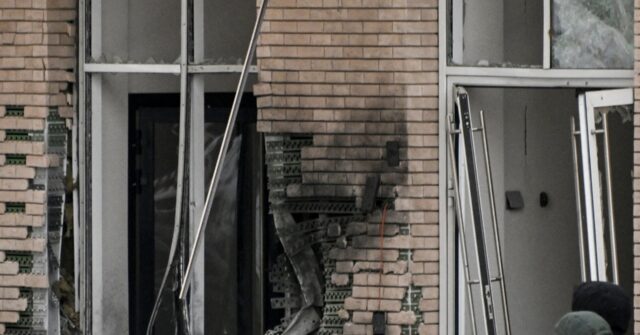On a recent Tuesday morning, the State Security Service (SBU) of Ukraine was reported to have carried out the assassination of Russian Lieutenant General Igor Kirillov in Moscow, as per information from the Ukrainian state outlet Ukrinform. Kirillov, along with an aide named Ilya Polikarpov, was killed in an explosion attributed to a bomb that had been stealthily placed in an electric scooter near their usual transport area. The explosion was detonated by approximately 300 grams of TNT, and the Ukrainian media reported that the explosion was not related to any gas line issues in the area, but solely due to the concealed explosive device.
Kirillov held a prominent position as the head of the Russian Armed Forces unit responsible for nuclear, biological, and chemical weapons defense. His assassination not only indicates Ukraine’s operational reach but also highlights the depth of their counteroffensive strategy against high-ranking officials in Moscow, despite ongoing struggles on the battlefield within their own territory. This event raises questions of Ukraine’s capabilities to effectively stage operations deep within enemy lines. Simultaneously, the plight of Ukraine regarding alleged chemical weapon attacks by Russia has gained increasing attention, with Kyiv and Washington accusing Moscow of such actions during its military offensive which began with the aim to overthrow President Volodymyr Zelensky in 2022.
Following the incident, Ukrinform confirmed the SBU’s involvement in Kirillov’s assassination. An anonymous source from the agency referred to him as a “completely legitimate target,” emphasizing the belief that he played a significant role in orchestrating attacks involving chemical weapons against Ukrainian civilians. The source recounted that Kirillov’s actions had been categorized as war crimes, thus legitimizing the operation to eliminate him. The SBU noted that the timing of the assassination coincided closely with the filing of criminal charges against Kirillov by Ukrainian authorities, which further highlights the strategic calculations involved in this high-profile killing.
In the wake of Kirillov’s death, the Russian government responded with accusations of state terrorism directed at Ukraine. Vyacheslav Volodin, the speaker of the Russian Duma, characterized Kyiv as a terrorist state, defending Kirillov’s legacy as integral to bolstering Russia’s biochemical defense capabilities. Concurrently, Russian official narratives seem to emphasize a broader perceived threat from Ukrainian forces, with officials alleging numerous assassination attempts and efforts to target Russian personnel as part of a systematic campaign by Ukraine. Meanwhile, Russian state media echoed the government’s stance without offering counter-evidence to Ukraine’s claims regarding the assassination.
Dmitry Medvedev, a former Russian president and current influential figure in the Kremlin, entered the fray by condemning the attack as a demonstration of desperation from the Ukrainian state. He warned that such actions would not dissuade Russia from its military objectives and underscored the perceived resolve of the Russian government to retaliate against perceived threats. Medvedev’s rhetoric reinforced long-standing narratives employed by the Russian government regarding the justification of their military operations, framing Ukraine as a state in turmoil that seeks to destabilize Russian security through “terroristic” actions.
While President Zelensky has remained publicly silent on the matter of the bombing, the situation highlights the ongoing complexities and brutal realities of the conflict between Ukraine and Russia. Kirillov’s assassination marks a significant moment that underscores both the operational capabilities and the intense high-stakes nature of the war. The implications extend far beyond the mere elimination of one individual, as it resonates within the broader discourse of warfare, accountability, and the constructed narratives militarized states leverage to justify their actions to both domestic and international audiences. As tensions continue to escalate, both sides appear resolute in their commitment to mutual destruction and retaliatory cycles amid ongoing conflict, raising profound questions about the future of regional stability.

